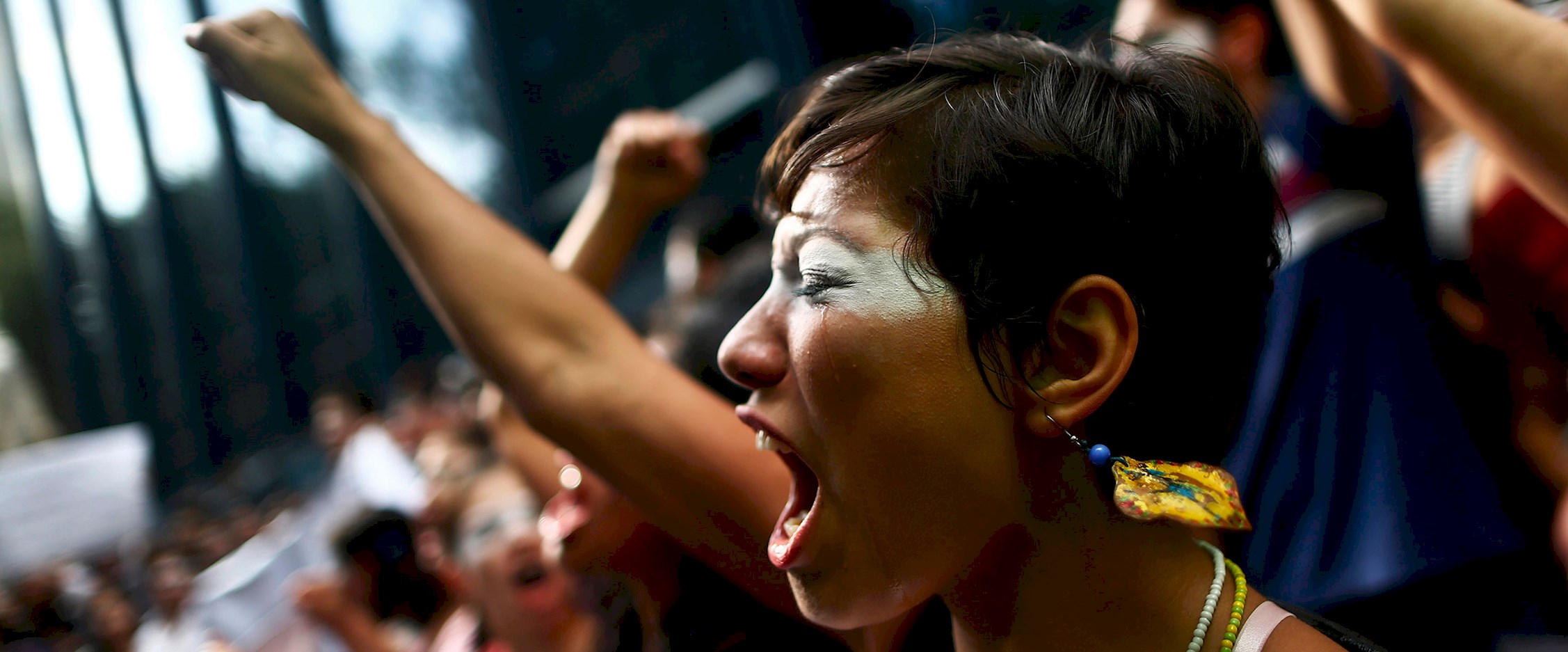Press Statement
As a Senate committee begins its inquiry into the issue on 3 November 2020, Amnesty International calls on the Philippine government to end its vicious and at times deadly practice of red-tagging- the labeling of groups or individuals perceived to be critical of the government as “communists” or “terrorists”. Instead of maligning and endangering people for the lawful exercise of their freedom of expression, the government should seek to address legitimate criticism of its policies and practices. In the prevailing context where red-tagged individuals become the targets of harassment, threats and even killings, courts and pertinent government agencies must take concrete steps to ensure the safety and protection of these individuals.
On 21 October, Lt. Gen. Antonio Parlade Jr. warned Filipino celebrity Liza Soberano in a Facebook post that she would “suffer the same fate” as Josephine Anne Lapira, who was killed in a clash in 2017 between government forces and alleged members of the communist New People’s Army. This followed Soberano’s expression of support for women’s rights organization and political party Gabriela, calling on influencers to speak up about the rights of women and children.
Parlade also publicly announced that former and current Congressional representatives of progressive party-list groups, including Gabriela, are under surveillance for being “card-bearing members of the Communist Party of the Philippines” (CPP), adding that the anti-terror law is now “in effect”. Parlade is the commander of the Armed Forces of the Philippines’ Southern Luzon Command and spokesperson of the government-created National Task Force to End Local Communist Armed Conflict (NTF-ELCAC).
The phenomenon of red-tagging has been happening for decades now but has intensified in the last few years under the administration of President Rodrigo Duterte, following the breakdown of peace talks between the government and the CPP in 2017. Duterte’s subsequent Executive Order (EO) 70 provides for a “Whole-of-Nation approach in defeating the Local Communist Terrorist Groups” and led to the creation of the NTF-ELCAC. Observers point to this moment in time as the beginning of a renewed campaign of red-tagging, threats and harassment against human rights defenders, political activists, lawyers, trade unionists and other targeted groups perceived to be affiliated with the progressive left.
The UN High Commissioner for Human Rights along with human rights organizations have called for the immediate end to this approach, expressing concern that the government’s dangerously broad counter-insurgency strategy has led to an increase in human rights violations against human rights defenders and political activists across the country.
Amnesty International remains deeply concerned by increasing cases of killings, as well as the arbitrary arrests and detention of red-tagged individuals. Recent examples of killings include the murder of activist and peace advocate Randall Echanis on 10 August 2020 and human rights defender Zara Alvarez on 17 August 2020. Echanis and Alvarez were among the hundreds of individuals named in a “terrorist” list drawn up by the Department of Justice and submitted to a Philippine court. Other political activists and human rights defenders have been arrested and detained following raids in their offices by security forces that allegedly involved fabrication of evidence, such as the planting of firearms and explosives. Those still detained include Reina Mae Nasino, a community organizer for Kadamay, an advocacy group for the urban poor. During her detention in October 2020, Nasino’s three-month-old baby died after being separated from her and the incident sparked public outrage. Amnesty International is concerned that killings, arrests and detention of political activists and human rights defenders will continue as long as indiscriminate red-tagging by the government persists.
Amnesty International is also concerned that the recent approval of the alarming implementing rules and regulations (IRR) of Republic Act 11479 or the Anti-Terrorism Act of 2020 provides the government further unchecked powers to unduly target anyone who may be red-tagged under the legislation. The IRR, for example, gives power to an Anti-Terrorism Council- composed of presidential appointees- to publish the names of those it designates on its own as “terrorists”. This practice is in contravention of international standards on due process and the presumption of innocence, with the only right of appeal being to the Council itself. It allows a pre-charge detention period of a maximum of 24 days, which greatly exceeds norms under international standards. The law remains in violation of international standards on human rights and counter terrorism with its vague and overbroad definitions of ‘terrorism’, highlighting the risk that it can be used to target government critics. In addition, it empowers security forces to conduct surveillance, endangering individuals’ right to privacy.
Amnesty International calls on the Philippine government to end the “red-tagging” of civil society organizations and political activists and cease violence and threats of violence against them. The government should ensure adequate protection for those who have been red-tagged, and bring those responsible for threats and violence to justice in fair trials. Philippine authorities should also publicly instruct their officials to end the harassment and intimidation of human rights defenders and activists simply for exercising their rights or carrying out human rights work.
Under international law and standards, the Philippines has an obligation to ensure the protection of the rights of all, including the rights to life, freedom of expression, and freedom of peaceful assembly, as guaranteed by the International Covenant on Civil and Political Rights (ICCPR) to which the Philippines is a state party. Ensuring that human rights defenders and civil society activists are able to undertake their professional activities free from harassment, threats, and harm is an essential component of the promotion and protection of human rights in the country.
Finally, the organization urges the government to ensure that the Anti-Terrorism Act and its implementing rules and regulations are amended and brought in line with international standards on counter-terrorism, and not used to unduly target those that are red-tagged by the Duterte administration.


